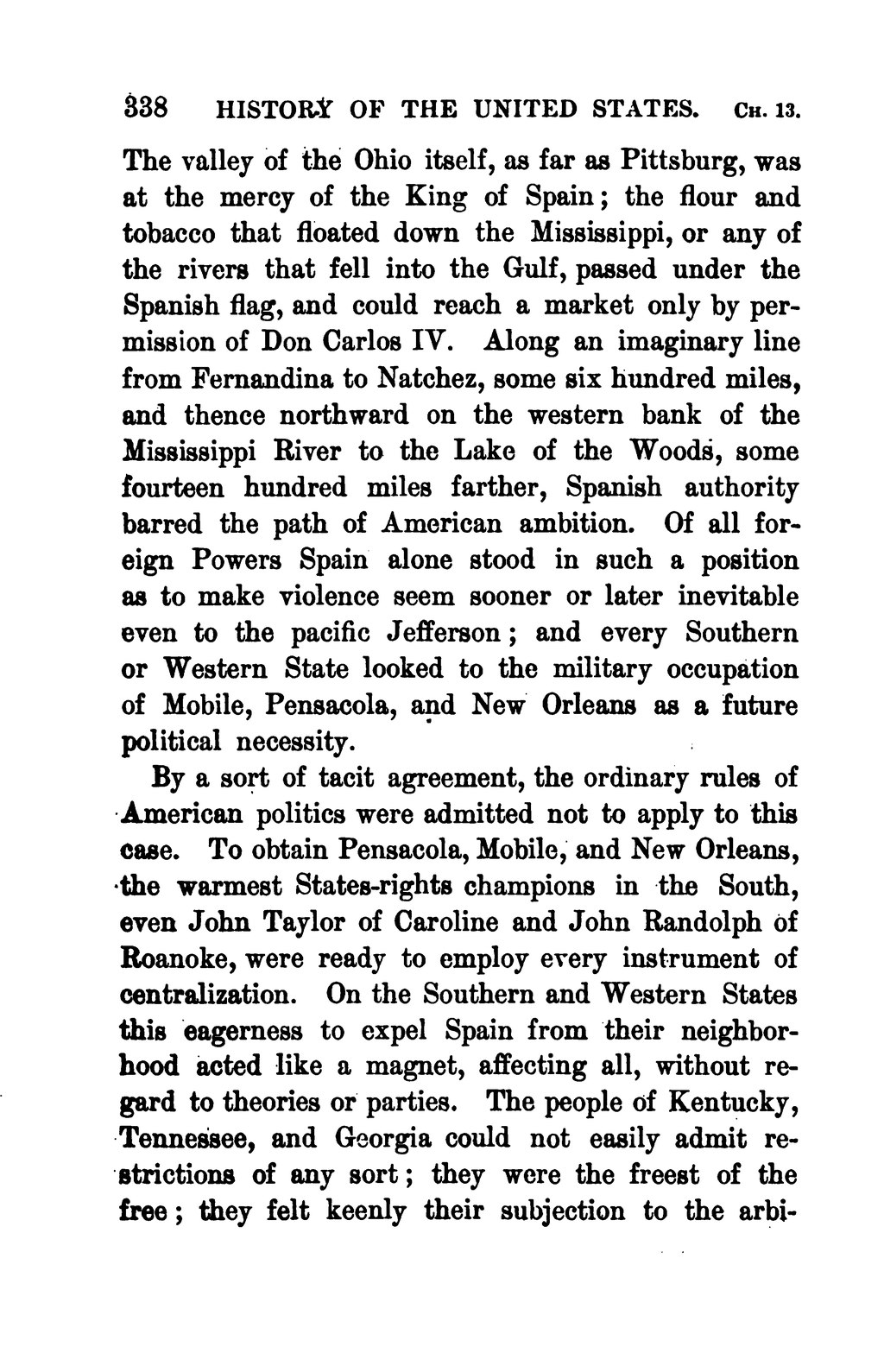The valley of the Ohio itself, as far as Pittsburg, was at the mercy of the King of Spain; the flour and tobacco that floated down the Mississippi, or any of the rivers that fell into the Gulf, passed under the Spanish flag, and could reach a market only by permission of Don Carlos IV. Along an imaginary line from Fernandina to Natchez, some six hundred miles, and thence northward on the western bank of the Mississippi River to the Lake of the Woods, some fourteen hundred miles farther, Spanish authority barred the path of American ambition. Of all foreign Powers Spain alone stood in such a position as to make violence seem sooner or later inevitable even to the pacific Jefferson; and every Southern or Western State looked to the military occupation of Mobile, Pensacola, and New Orleans as a future political necessity.
By a sort of tacit agreement, the ordinary rules of American politics were admitted not to apply to this case. To obtain Pensacola, Mobile, and New Orleans, the warmest States-rights champions in the South, even John Taylor of Caroline and John Randolph of Roanoke, were ready to employ every instrument of centralization. On the Southern and Western States this eagerness to expel Spain from their neighborhood acted like a magnet, affecting all, without regard to theories or parties. The people of Kentucky, Tennessee, and Georgia could not easily admit restrictions of any sort; they were the freest of the free; they felt keenly their subjection to the arbitrary
